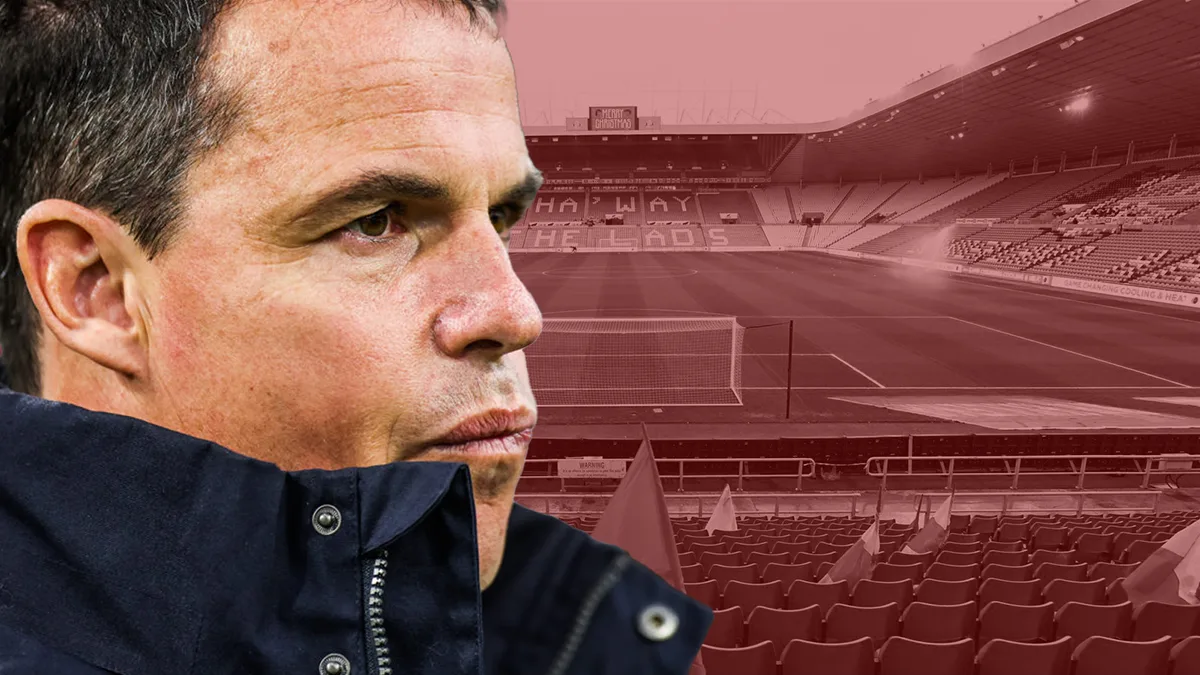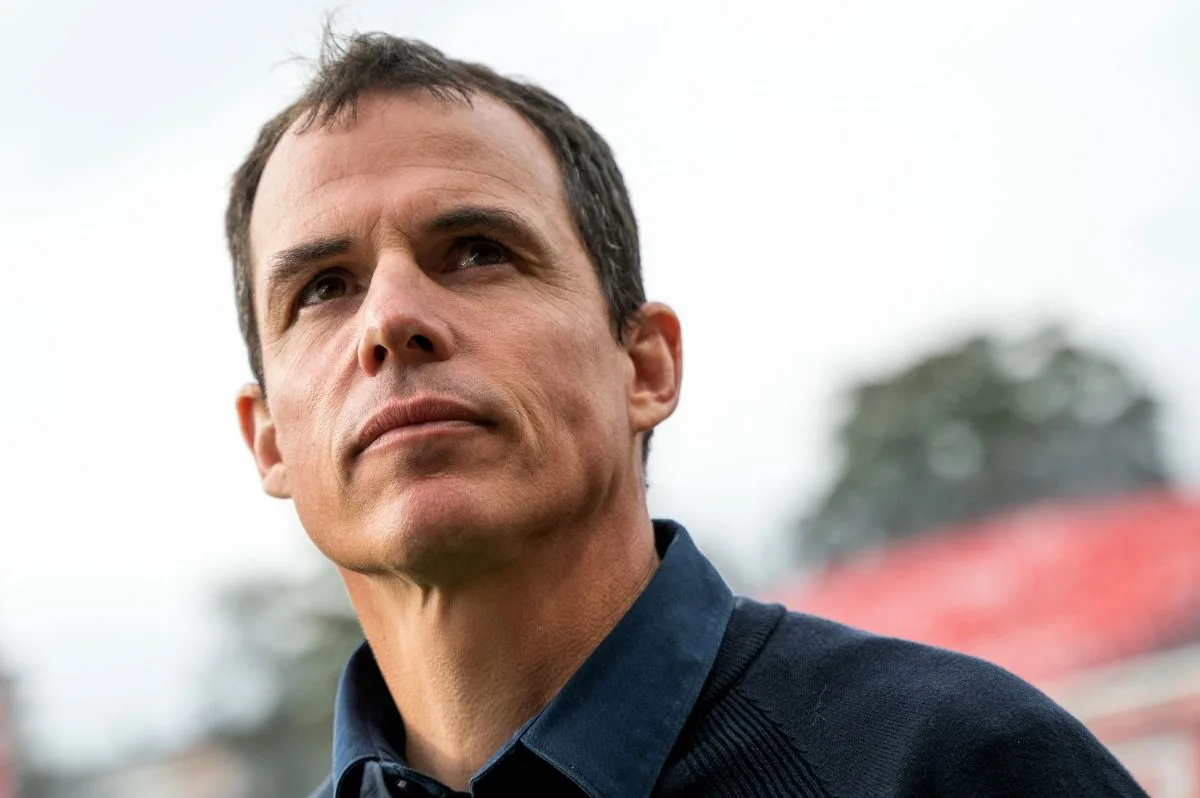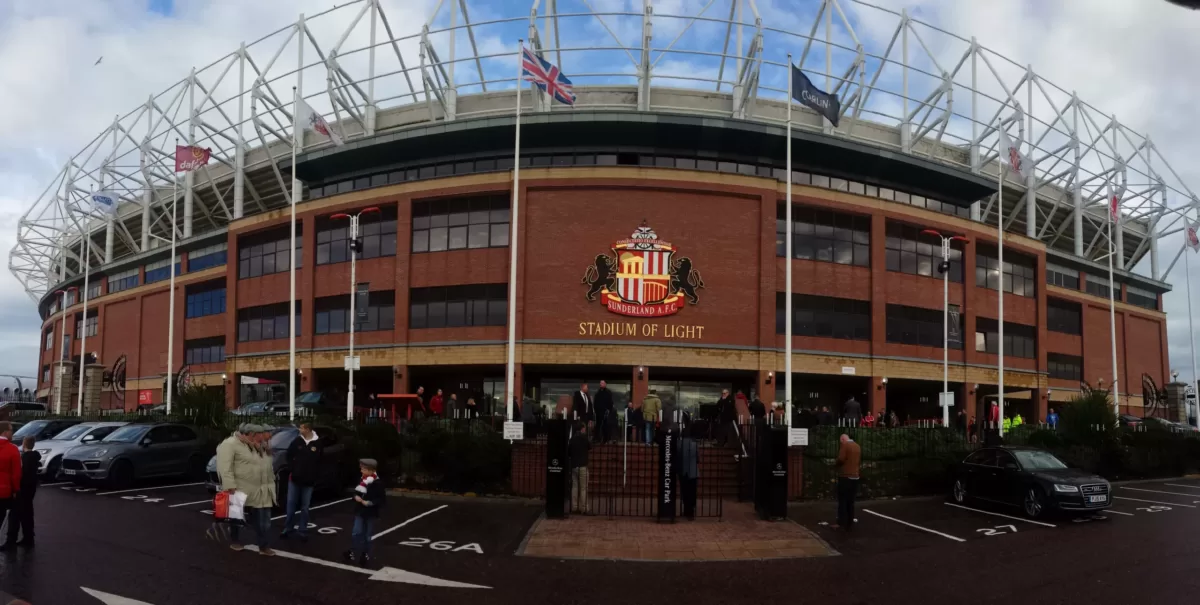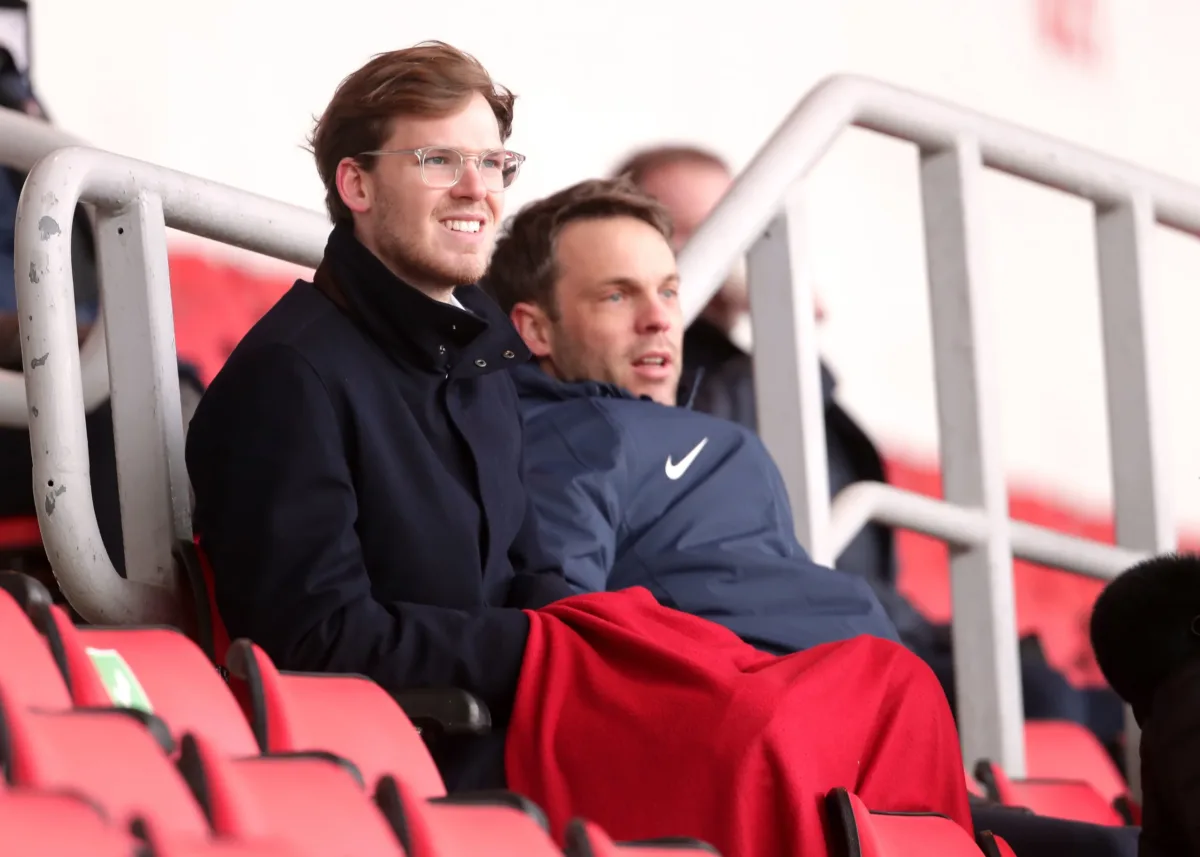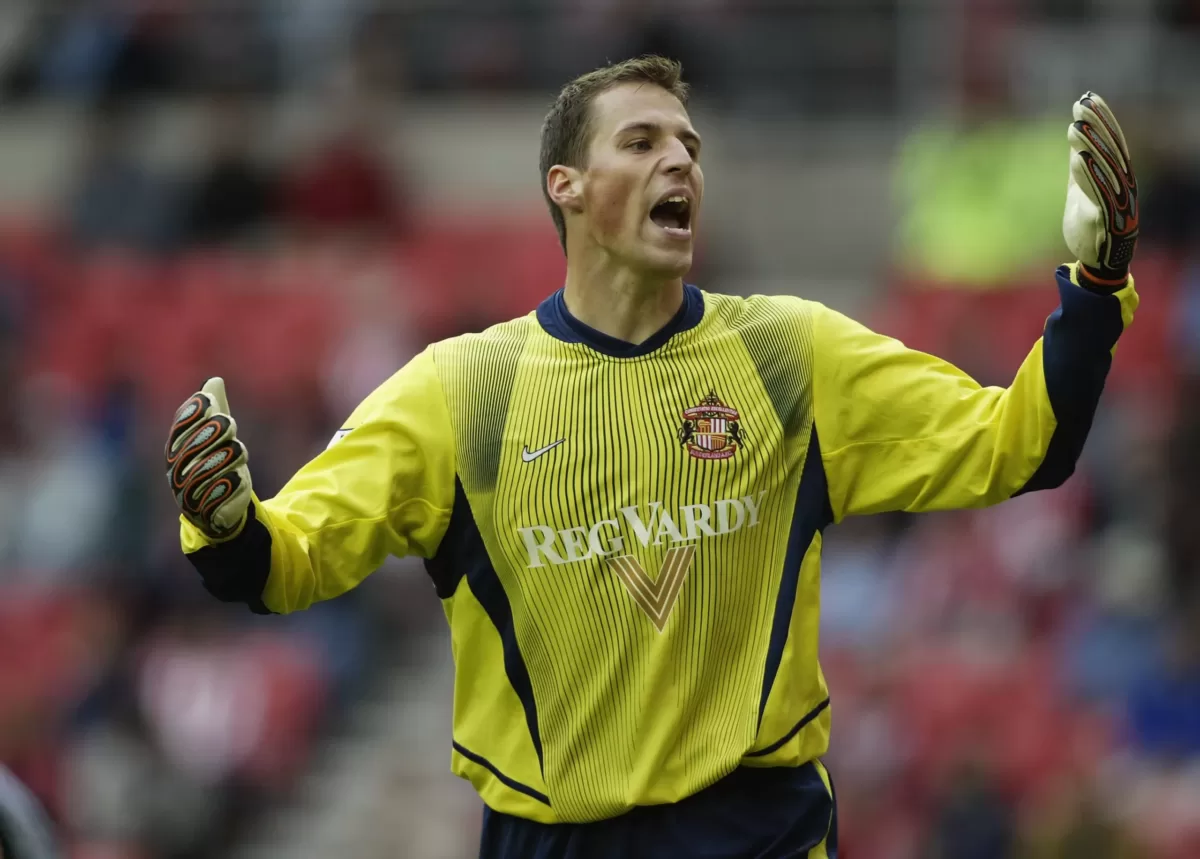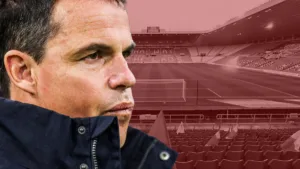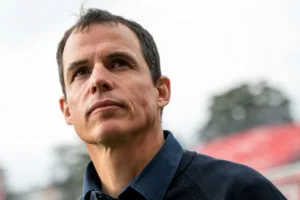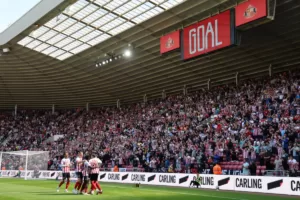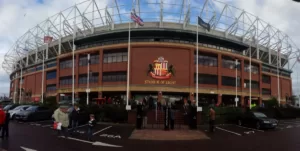Nothing should surprise anybody in football nowadays. From sovereign states attempting to cover up a questionable human rights record by buying a provincial city football club in the Premier League or attract a ragtag bunch of high-earners to its rotten domestic league, to the country’s richest and most powerful clubs uniting to secretly form a breakaway European league, nothing is off the table any more.
A club changing its manager in quickfire fashion is no longer the shock tactic it used to be. You become almost deadened to its effect. Watford change their manager every 15 minutes. We gave Tony Mowbray 15 months.
While it’s not shocking or surprising anymore, it can still be disappointing. Supporting a football team is an emotion-led thing. If you’re not sitting here this morning disappointed at the end of the Tony Mowbray era, either you’ve been living under a rock for the last 15 months or you’re perhaps not capable of human emotions. You could be a lizard. So maybe you have been living under a rock.
There was the opportunity for plenty of conversation and contemplation on the way back from Plymouth Argyle last week. When the journey lasts as long as an entire working day, you can cover some ground.
Having witnessed Mowbray’s Sunderland side huff, puff and fail to even dislodge a roof tile at Home Park, and then hear that Luton Town picked up their first home win of the season in the Premier League, there was a moment we thought ‘ah, that could have been us, yet this is us now, struggling to beat a side that was in League One last season’.
I said to my daughter: “It’s a shame that the Preston away game, for all it was exciting and exhilarating, just means absolutely nothing now.”
My daughter replied: “Yes. But it meant everything then.”
She was right. And she is right. That day at Deepdale, with all the permutations swimming around, came down to one moment. Being part of a human washing machine spitting supporters out all over the place as victory, and results elsewhere, sealed a place in the play-offs which we stood a 3% chance of achieving just a month before.
That was a moment. And Tony Mowbray was the man that helped deliver it, by injecting his young, inexperienced team with the confidence and swagger that, for a short time anyway, made us believe we were capable of going places again.
But of course, this is Sunderland. That kind of thing doesn’t last long.
Mowbray has gone on the record numerous times, even last season, about the need to blend experience with the exciting youth talent we have.
But the club’s leadership, on the football side led by Krijstaan Speakman, were dogmatic in their approach. They achieved sixth with a young team last season – surely that’s vindication for the policy of buying young?
Well, no. It’s not. Because what we’re seeing now is the result of a team made weaker by its transfer activity – certainly in the short-term – and a league that we all knew was going to be stronger, with Ipswich and Plymouth racking up massive points totals to gain promotion and the likes of Leicester, Southampton and Leeds United coming down from the Premier League.
Finishing sixth with 69 points last season was an outlier, we knew that. Everyone knew that. So to finish in the same position next season we’d have to out-do the season before, with tougher teams. The need to blend experience with the raw potential was obvious.
Instead, we moved the experience we already had at the club out – Danny Batth was made persona non grata and Alex Pritchard was told he could leave – while he didn’t leave, he has been reduced to a bit-part role so far this season. Lynden Gooch, more experienced yet younger than Luke O’Nien, sobbed in his final interview for the club as he was sent packing for Stoke. I’ve been to Stoke, I’d have been crying too.
At this time, where we are, where others are, I don’t think there’d be any other managers out there that could work with the young players to such effect – the next manager won’t have a choice, of course – knowing the drawbacks of the squad balance and presenting those concerns with respect and grace like Mowbray did. He did not have to shout and scream, and he could have walked himself long before today, but he accepted the hand the club dealt him and tried to make the best of it.
His successor will inherit a club within touching distance of the play-off spots, with a team brimming with talent, but low on experience and the gritty nous needed to win games ugly, or to really grind a point out.
In attack, Mowbray started with Ross Stewart, and left the club with Nazariy Rusyn, who has done very little except fall over quite a lot, Luis Hemir, who needs a sat nav to find the penalty area and still looks utterly bewildered once he’s reached his destination, Mason Burstow, a player who could come good but is ultimately someone else’s man, and Eliezer Mayenda, who could be the best of the bunch except his first touch ensures his second touch is a tackle.
The blame for those strikers not clicking should not entirely be on Tony Mowbray’s charge sheet. And none of the aforementioned players replaced Stewart, of course. It’s not like he was the family cow traded for magic beans like in Jack and the Beanstalk. The Ross Stewart money is still swilling around in the club coffers, and surely they need to dip into it in January.
It comes down to this – what are the club’s ambitions this season? Was it to have a crack at the play-offs, perhaps improve slightly on last season, while blooding through some new players, and if we don’t make it, we don’t make it?
Or, was it to take that promising team, improve it further, then set about having a proper go at automatic promotion?
If it was the former, then Tony Mowbray was probably the best manager around to do that at this present time.
If it’s the latter, then the new manager coming in will quickly identify – just like Mowbray did – that the squad needs major investment to do that in short order.
Having enhanced data and insights on transfer targets is one thing, but more and more clubs have access to the same data – it once again becomes a money game. And yes, we could find someone who could play like Ross Stewart in the German second tier, but if he’s good enough, chances are other clubs will also have that same data.
If we stand any chance of getting back to the Premier League this season, we have to spend a little more than we are to recruit players that don’t need six months to bed in, that don’t need a loan out to get experience, we need them ready to go now.
Tony Mowbray knew that. And I think, deep down, Speakman and Kyril-Louis Dreyfus know that.
They know what kind of club they want to be, and where they want to be playing. And the fans know where they want to be playing, too.
If we’re not all on the same page about this, then it’s a real worry. The next appointment, the next person to be standing in front of the Academy of Light holding up a well-worn scarf – that will tell us all we need to know about the ambitions of this club. I desperately hope they’re right on this.









